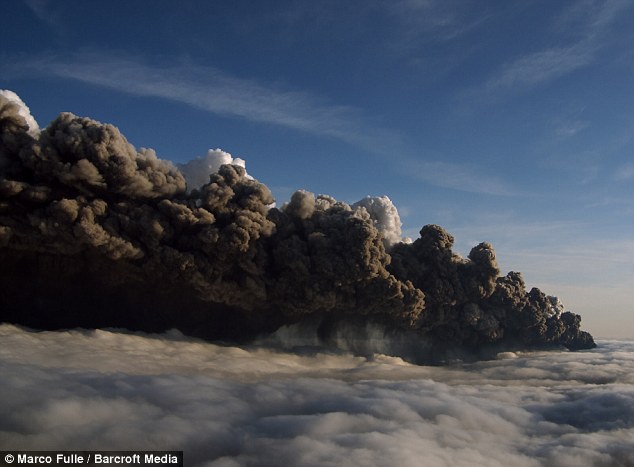Hundreds of flights have been cancelled around the UK and Europe and all UK airports have now closed as a result of a volcano eruption in Iceland. Airports that were open earlier this morning have now closed having suffered major disruption.
The developments came after the Eyjafjallajokull volcano in Iceland yesterday erupted for the second time in a month, spewing massive clouds of ash thousands of feet into the sky. Scientists said the eruption, under a glacier, was 10 to 20 times more powerful than the one last month. The volcano erupted on March 20 after almost 200 years of silence.
The ash in the atmosphere closed Scottish airspace this morning and forced Aberdeen, Glasgow, Edinburgh and Newcastle airports to close. Hundreds of flights have been cancelled at other airports.
Liverpool, Manchester, Stansted, Birmingham, East Midlands, Bristol, Luton, Gatwick and Heathrow are all affected.. It cannot be seen from the ground as it is blowing across Britain around three miles in the sky. Ash can disrupt the engines of an aircraft and reduce visibility as well as affecting landing and navigation gear.
This morning a Heathrow Airport spokesman said 150 flights, both arrivals and departures, had been cancelled – at the busiest time of the day – and more flights were expected to be affected as the cloud of ash moved south.  At Gatwick, 108 flights have been cancelled, while at least 17 flights are grounded at Stansted.
At Gatwick, 108 flights have been cancelled, while at least 17 flights are grounded at Stansted.
Birmingham airport has seen 70 flights cancelled, while Bristol has halted around 20 flights. Rivers rose by up to ten feet (three metres) as the ferocious temperatures melted the glacier, turning it to water, which gushed down the mountainside.
Iceland’s main coastal ring road was closed near the volcano, and workers smashed three holes in the highway in a bid to to give the rushing water a clear route to the coast and prevent bridges from being swept away.
Scientists said the eruption under the ice cap was 10 to 20 times more powerful than the one last month, and carried a much greater risk of widespread flooding.

